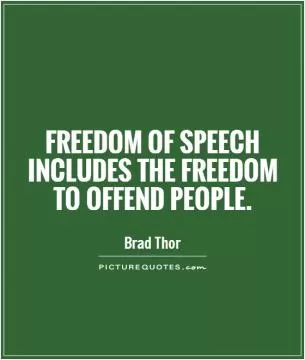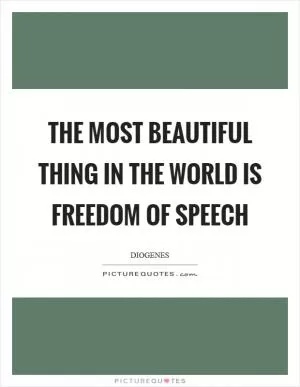People demand freedom of speech as a compensation for the freedom of thought which they seldom use

Freedom Of Speech QuotesThought QuotesFreedom Of QuotesFreedom Speech QuotesFreedom Of Thought QuotesFree Speech Quotes
People demand freedom of speech as a compensation for the freedom of thought which they seldom use
Soren Kierkegaard, a Danish philosopher, theologian, and poet, is known for his profound insights into human nature and the complexities of existence. One of his most famous quotes, “People demand freedom of speech as a compensation for the freedom of thought which they seldom use,” speaks to the paradoxical nature of human behavior when it comes to the exercise of our intellectual faculties.Kierkegaard believed that true freedom of thought was a rare and precious gift, one that required deep introspection, self-awareness, and a willingness to challenge one’s own beliefs and assumptions. However, he also recognized that many people are content to simply parrot the opinions of others, to conform to societal norms and expectations, rather than engage in the difficult and often uncomfortable work of thinking for themselves.
In this context, the demand for freedom of speech can be seen as a kind of shortcut, a way to express oneself without having to do the hard work of truly understanding one’s own thoughts and beliefs. It is easier to speak out, to voice our opinions and grievances, than it is to grapple with the complexities of our own minds and hearts.
Kierkegaard’s critique of this tendency is a powerful reminder of the importance of intellectual honesty and self-reflection. He believed that true freedom of thought was essential for living an authentic and meaningful life, and that it required a willingness to question, to doubt, and to explore the depths of our own consciousness.












 Friendship Quotes
Friendship Quotes Love Quotes
Love Quotes Life Quotes
Life Quotes Funny Quotes
Funny Quotes Motivational Quotes
Motivational Quotes Inspirational Quotes
Inspirational Quotes